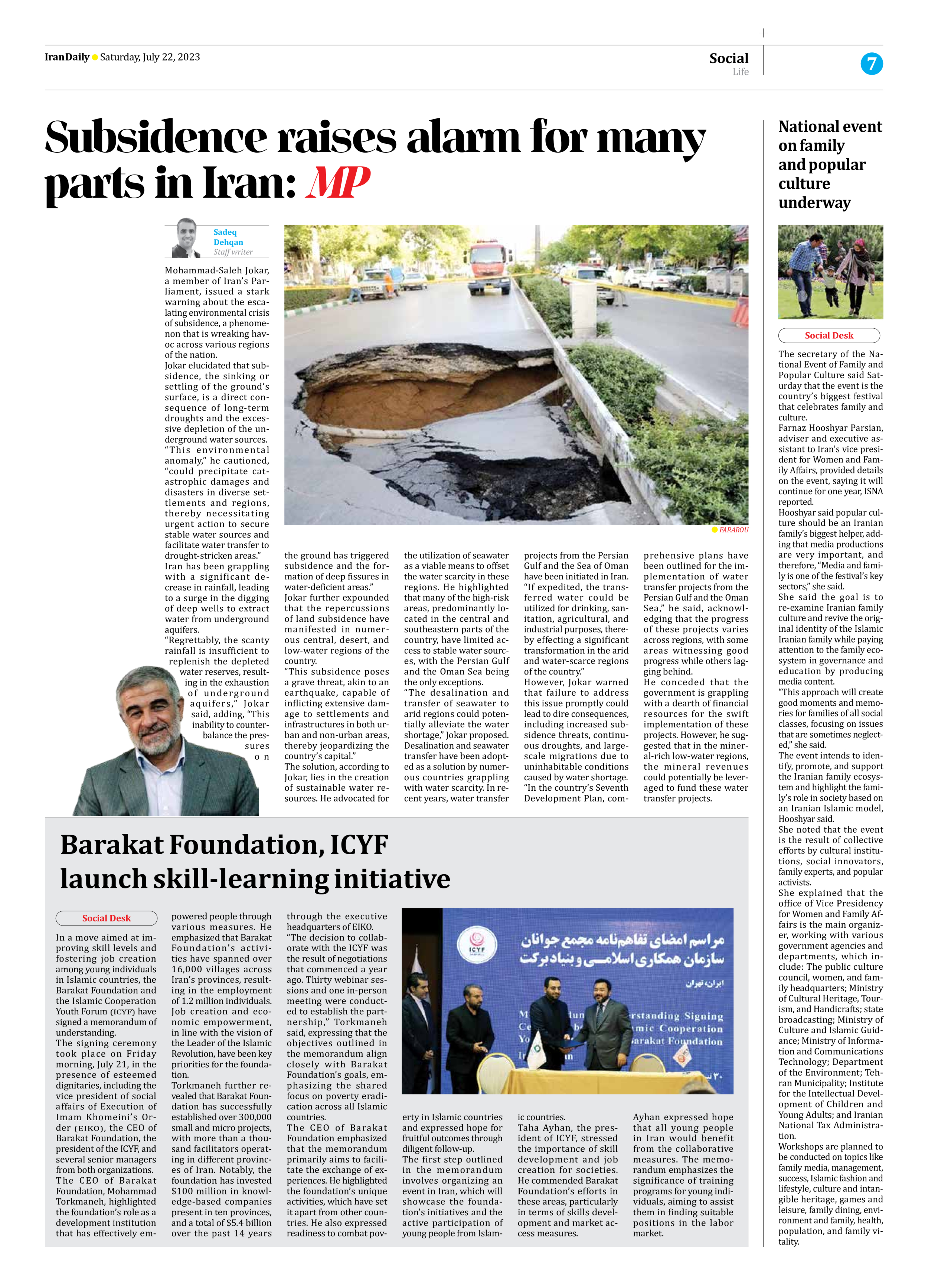
Subsidence raises alarm for many parts in iran: MP
Sadeq Dehqan
Staff writer
Mohammad-Saleh Jokar, a member of Iran’s Parliament, issued a stark warning about the escalating environmental crisis of subsidence, a phenomenon that is wreaking havoc across various regions of the nation.
Jokar elucidated that subsidence, the sinking or settling of the ground’s surface, is a direct consequence of long-term droughts and the excessive depletion of the underground water sources.
“This environmental anomaly,” he cautioned, “could precipitate catastrophic damages and disasters in diverse settlements and regions, thereby necessitating urgent action to secure stable water sources and facilitate water transfer to drought-stricken areas.”
Iran has been grappling with a significant decrease in rainfall, leading to a surge in the digging of deep wells to extract water from underground aquifers.
“Regrettably, the scanty rainfall is insufficient to replenish the depleted water reserves, resulting in the exhaustion of underground aquifers,” Jokar said, adding, “This inability to counterbalance the pressures on the ground has triggered subsidence and the formation of deep fissures in water-deficient areas.”
Jokar further expounded that the repercussions of land subsidence have manifested in numerous central, desert, and low-water regions of the country.
“This subsidence poses a grave threat, akin to an earthquake, capable of inflicting extensive damage to settlements and infrastructures in both urban and non-urban areas, thereby jeopardizing the country’s capital.”
The solution, according to Jokar, lies in the creation of sustainable water resources. He advocated for the utilization of seawater as a viable means to offset the water scarcity in these regions. He highlighted that many of the high-risk areas, predominantly located in the central and southeastern parts of the country, have limited access to stable water sources, with the Persian Gulf and the Oman Sea being the only exceptions.
“The desalination and transfer of seawater to arid regions could potentially alleviate the water shortage,” Jokar proposed.
Desalination and seawater transfer have been adopted as a solution by numerous countries grappling with water scarcity. In recent years, water transfer projects from the Persian Gulf and the Sea of Oman have been initiated in Iran.
“If expedited, the transferred water could be utilized for drinking, sanitation, agricultural, and industrial purposes, thereby effecting a significant transformation in the arid and water-scarce regions of the country.”
However, Jokar warned that failure to address this issue promptly could lead to dire consequences, including increased subsidence threats, continuous droughts, and large-scale migrations due to uninhabitable conditions caused by water shortage.
“In the country’s Seventh Development Plan, comprehensive plans have been outlined for the implementation of water transfer projects from the Persian Gulf and the Oman Sea,” he said, acknowledging that the progress of these projects varies across regions, with some areas witnessing good progress while others lagging behind.
He conceded that the government is grappling with a dearth of financial resources for the swift implementation of these projects. However, he suggested that in the mineral-rich low-water regions, the mineral revenues could potentially be leveraged to fund these water transfer projects.







